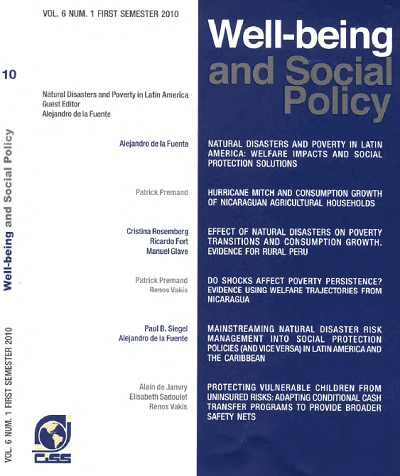
Shocks are often primarily associated with downward mobility or short-term movements in and out of poverty. However, households at the bottom of the welfare distribution are likely to face the most constraints to access insurance mechanisms. In this paper, we consider whether shocks directly affect poverty persistence. In order to analyze the impact of shocks on households’ welfare path over time, we define trajectories as the sequence of households’ position along the welfare distribution as time unfolds. Trajectories provide a consistent representation of households’ mobility when the first-order Markov assumption is violated. In a three-round Nicaraguan panel, we assess the role of shocks in driving two specific mobility patterns. We confirm that shocks contribute to downward mobility, but find novel and robust evidence that shocks trigger poverty persistence, preventing upward movement from the bottom of the distribution. This result points to large potential gains from social risk management policies targeting not only the vulnerable non-poor, but also and in priority the poor.
